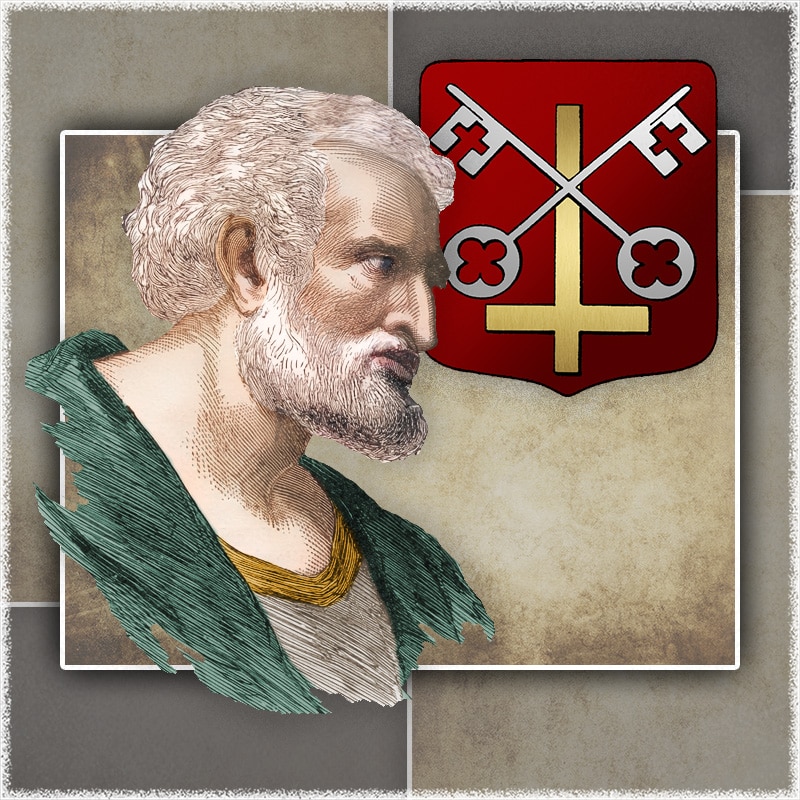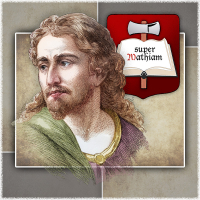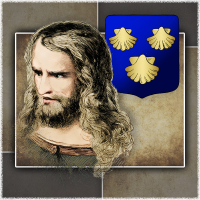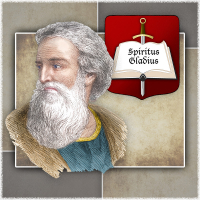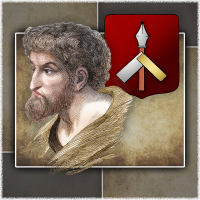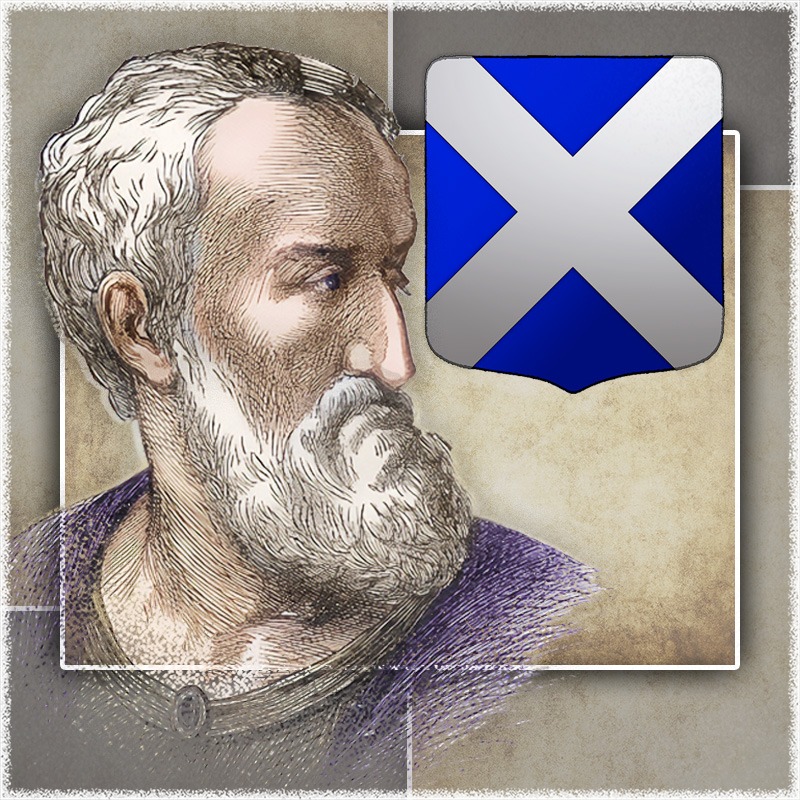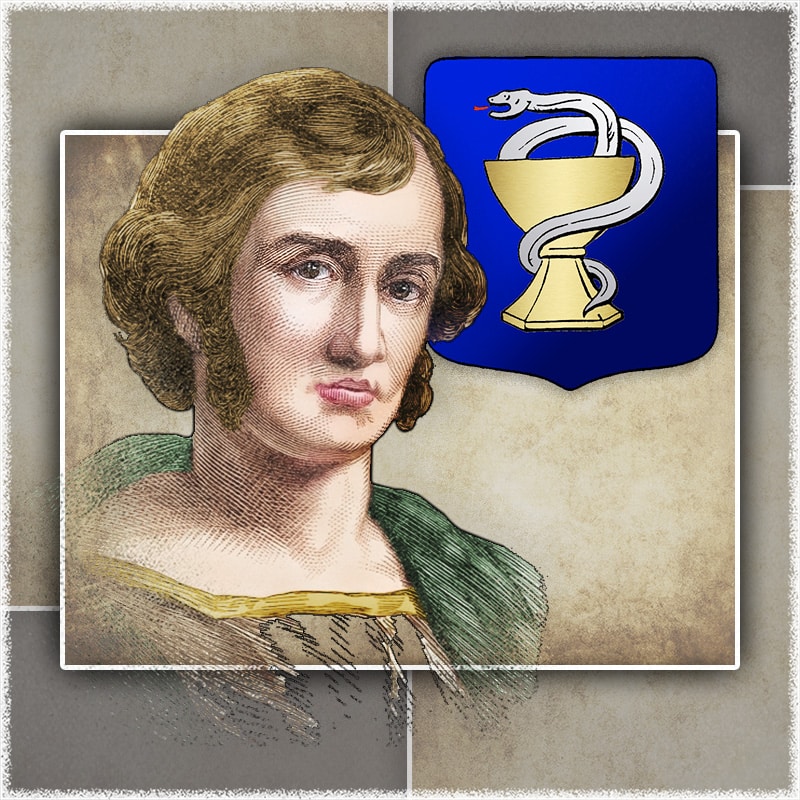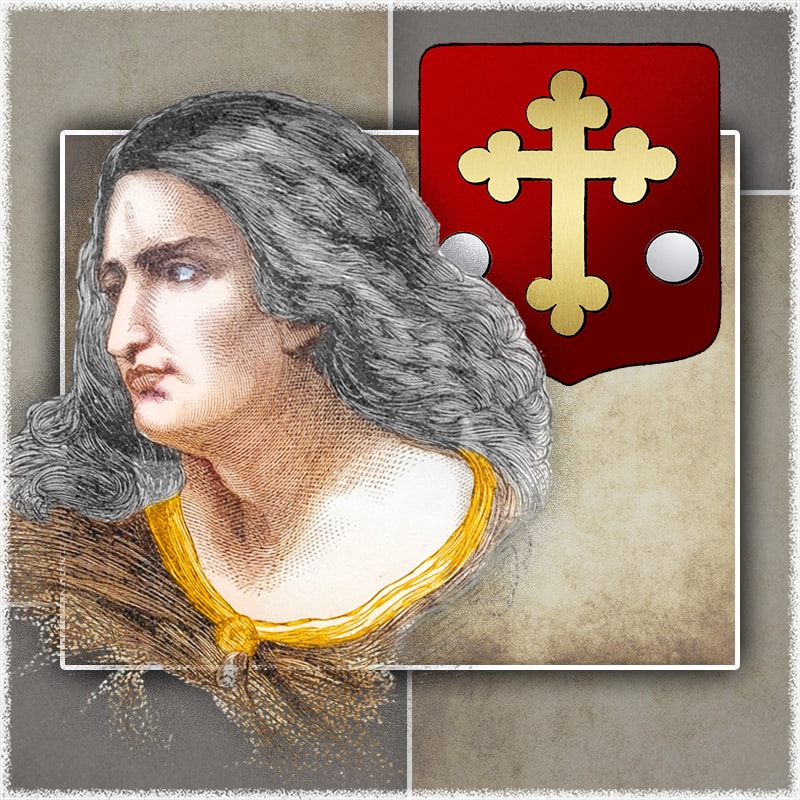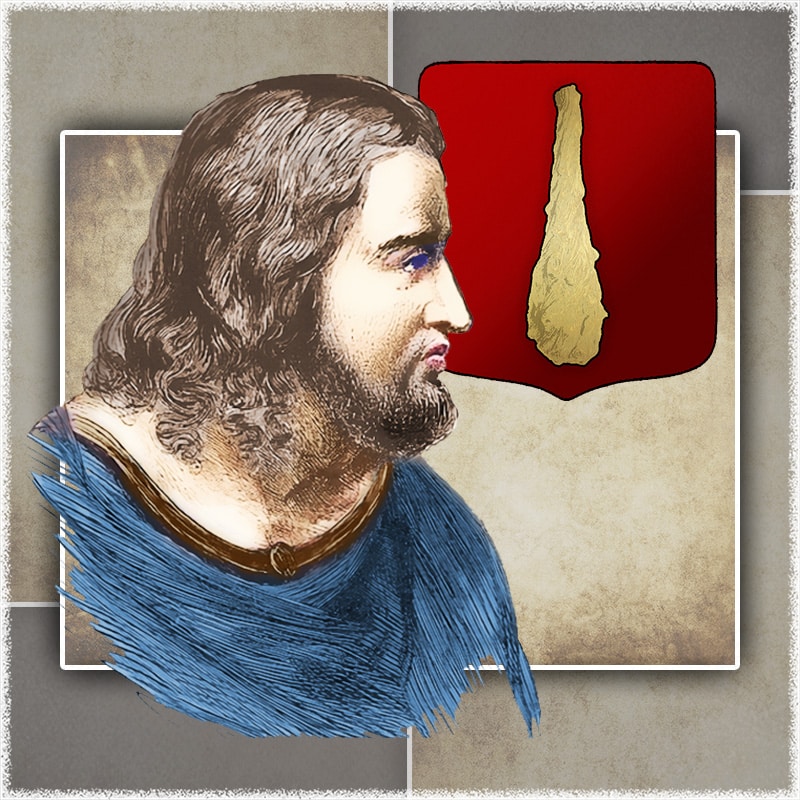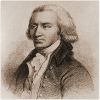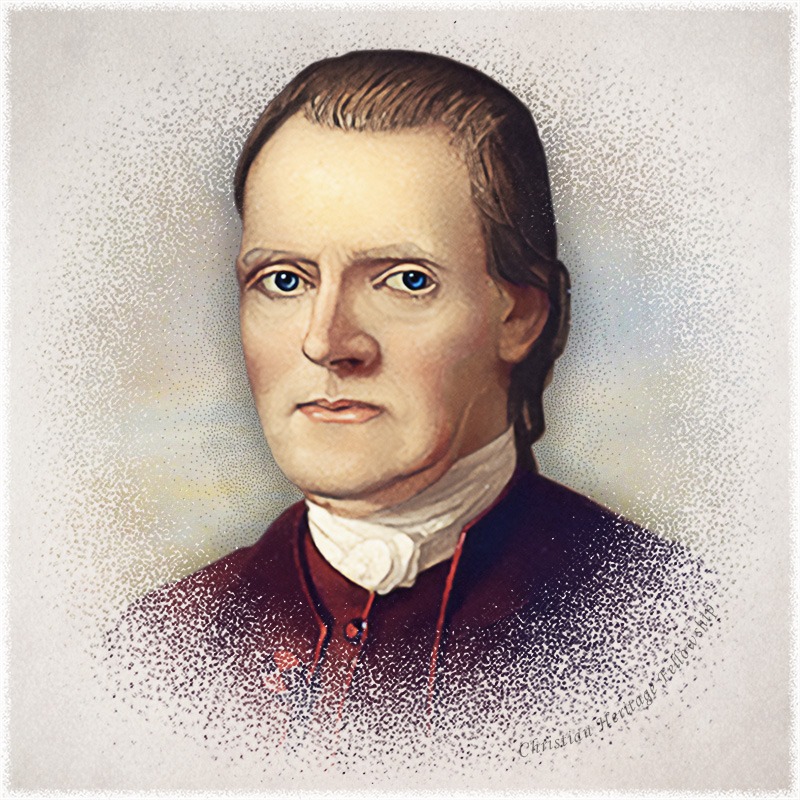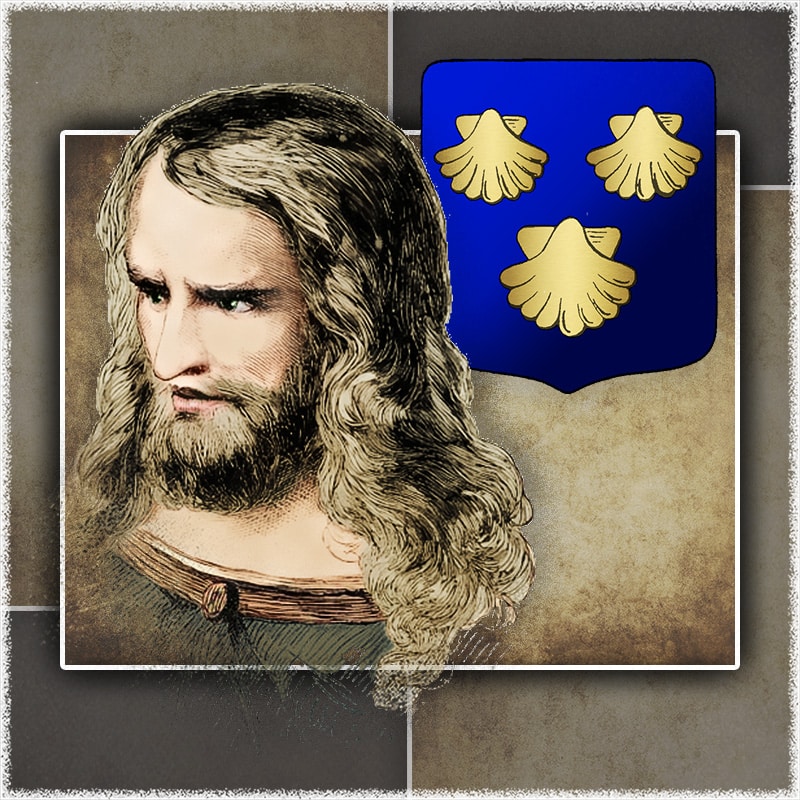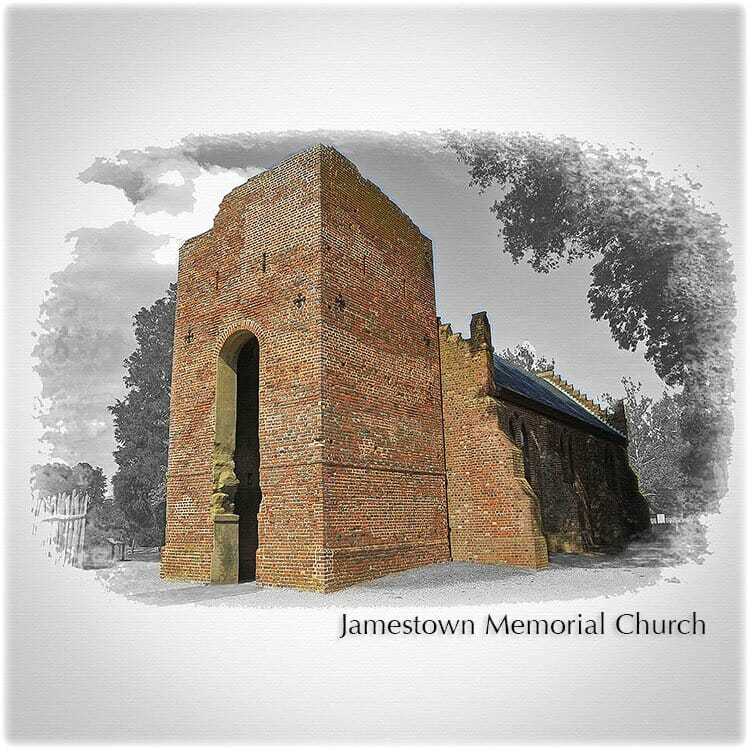The original name of the Apostle Peter was Simeon or Simon. He received the name Cephas (Aramaic Kepa—"Rock") from Jesus; the Greek translation of Kepa was Petros, hence the translation Peter. His father's name was John (John 1:42), or Jonah (Matthew 16:17), and though he was born in Bethsaida, he lived at Capernaum following his marriage. With his younger brother Andrew, Peter carried on the trade of fisherman. He was a follower of the ministry of John the Baptist, and through Andrew was introduced to Jesus (John 1:41, 42). His home was a rendezvous for the disciples of Jesus, and Peter was one of the three disciples who witnessed our Lord’s most private experiences and miracles and heard his most private speeches (Matthew 17:1, 26:37; Mark 5:37).Remembering the Apostle Peter
Peter closely identified himself with Jesus and was the leader and spokesman of the band of disciples. From his lips came the emphatic affirmation, "Thou art the Christ, the Son of the living God." In response, Jesus declared, "Blessed art thou, Simon Bar-Jonah: for flesh and blood hath not revealed it unto thee, but my Father which is in heaven. And I also say unto thee, that thou art Peter, and upon this rock I will build my church; and the gates of Hades shall not prevail against it. I will give unto thee the keys of the kingdom of heaven: and whatsoever thou shalt bind on earth shall be bound in heaven: and whatsoever thou shalt loose on earth shall be loosed in heaven" (Matthew 16:17-19). That no superior authority was thus given to Peter by the "keys" is obvious in the fact that the same authority was given to the entire church (Matthew 18:18). Remembering the Apostle Peter
Following the Death of Christ
The Gospels constitute our only historical source for the life of Peter up to the ascension of Jesus. After this event we have the Acts of the Apostles, a few notices in the Pauline Epistles and accounts in the Apostolic Fathers. The result is a reliable and full history. From it we learn that Peter, unintimidated by the threats of the Sanhedrin, prosecuted with great energy his apostolic calling. He went down into Samaria (Acts 8:14ff), and, after Paul’s conversion, traveled to the Syro-Phoenician coast and visited Lydda, Joppa, and Caesarea (Acts 9:32-10:48). Upon his return to Jerusalem, he was arrested by Herod Agrippa, released miraculously and left the city (Acts 12:17), and does not again appear in the history until the Council of Jerusalem, in which he played a prominent part (Acts 15). In the latter part of his life, he is reported by the Apostle Paul to have made great missionary journeys, accompanied by his wife (1 Corinthians 9:5; Galatians 2:11).
His position among the primitive disciples is in accord with the declaration of Jesus (Matthew 16:18, 19). He was their leader. On his advice an apostle is chosen (Acts 1:22); by his preaching the first great increase in the church occurred (Acts 2:14), by him the disciples were defended against the Jewish hierarchy (Acts 4:8, 19; 5:29), the church cleansed of unworthy members (Acts 5:3ff), the union of the outside communities with it guarded (Acts 8:14; 9:32), and the first non-Jewish members received into the church (Acts 10).
But Peter’s position in no way accorded him exclusive jurisdiction. The ordination of the first ecclesiastical officers, the seven deacons, was shared by all the apostles (Acts 6:6); the Samaritan tour of inspection was made with John on terms of entire equality, and on the commission of the apostles (Acts 8:14); his conduct in Caesarea was sharply criticized by the strict party, but elaborately defended (Acts 11:1-18); and finally, in the Council of Jerusalem, the presiding officer was not Peter, but James (Acts 15:13). Paul confirms this statement, showing that, while at first Peter’s authority was paramount (Galatians 1:18), later he was one of the three pillar-apostles, along with James and John, and next to James (Galatians 2:9).
Peter’s Death at Rome
Of the final days of Peter's life, the New Testament is silent. The few scattered statements in the early Church Fathers who succeeded the apostles and other early church writers make it most probable that Peter died in Rome as a martyr, under Nero. The evidence for this assertion follows. In the Gospel of John (20:18), Jesus alludes to the martyrdom of Peter. Early Church Father, Clement of Rome, in his first letter to the Corinthians, says, "Let us set before our eyes the good apostles, Peter, who through unjust envy endured not one or two, but numerous, labors, and, after he had at length suffered martyrdom, went to the place of glory appointed to him." Inasmuch as tradition invariably makes Rome the place of Peter’s martyrdom, Clement speaks of Paul’s martyrdom immediately after that of Peter. Papias would seem also to be a witness to the Roman residence of Peter. He relates, on the testimony of a presbyter, that the Gospel of Mark, whom he calls "the interpreter of Peter," was composed in Rome. To these affirmations may be added the witness of the apocryphal Acts of Peter and Paul, Dionysius of Corinth, Irenaeus, Tertullian, Clement of Alexandria, and the Roman presbyter Caius who speaks of Peter’s grave in the Vatican, and the Apostle Paul’s on the Via Ostia.
Apostolic Symbol
Several symbols are given to Peter who denied yet finally died for his Lord. He is associated with keys because it was to Peter that Jesus spoke about "the keys of the Kingdom." In some cases, he is depicted with a cock nearby, seeing that he wept bitterly as he heard the cock crow. Finally, the inverted cross upon which he is believed to have died is also a symbol commonly associated with Peter.
America deserves to know its true heritage.
Please contribute today!

